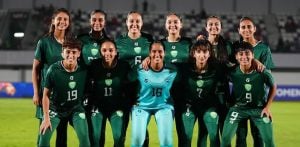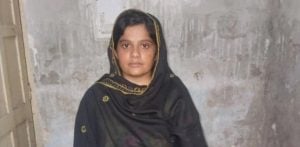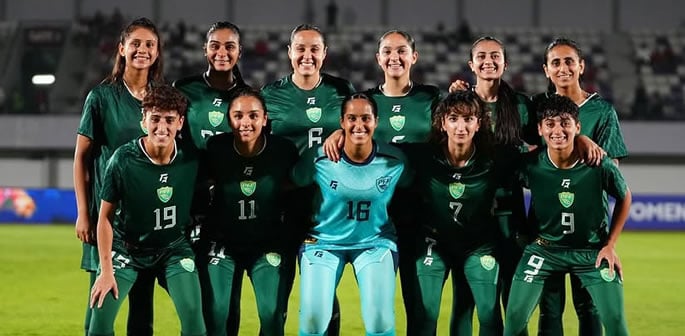“More games will only make us better."
From years of inactivity to a promising resurgence, the Pakistan women’s football team is undergoing a significant transformation.
Between 2014 and 2022, the team did not play a single international fixture, leaving an entire generation of players without experience.
Now, the squad is returning to competitive football with a new-look side, heavily boosted by British-born players.
These players are raising the team’s technical level and bringing a professional mindset cultivated in Europe.
Their presence marks a turning point for a national programme long hampered by political infighting, corruption, and the absence of domestic competition.
British-born Players

The lack of domestic football left Pakistan with a void that could only be partially filled by Pakistani-heritage players outside the country.
Layla Banaras, a 19-year-old from Birmingham who plays for Lewes in England’s third tier, exemplifies this trend:
“I was contacted when I was 13 or 14, but I felt I was too young to play for the national team.
“They contacted me again this year as they had the Asian Cup qualifiers coming up. I thought: ‘Why not? This is perfect timing’.”
Her parents supported her decision:
“My dad is Pakistani heritage and my mum is white British and she was over the moon. My dad loves the cricket team and everything about Pakistan, and he thinks it is amazing.”
Banaras is joined by Wrexham forward Mariam Mahmood, who followed a similar path.
She turned down previous approaches before committing to the Pakistan national team in the summer of 2025.
Mahmood said:
“I was going with girls who had never been before so we didn’t know what to expect but we were all excited about the challenge.”
The 21-year-old recalled that integrating 24 players with different language backgrounds was initially challenging, but training and shared experiences quickly built cohesion.
“I made friends for life over there. I really enjoyed it. Everything was good, the food, the training, the kit – everything.”
On the pitch, the adjustment took a little longer. Mahmood described their first match as a learning curve, but by the time they faced Indonesia, the team played with confidence and determination.
Banaras echoed this sentiment, noting that football had united them: “More games will only make us better.
“We have gone up in the world rankings [to 154] and we can keep going better. We had a camp in Pakistan for a week so we didn’t have much time, so to do what we did was amazing.”
Competitive Progress
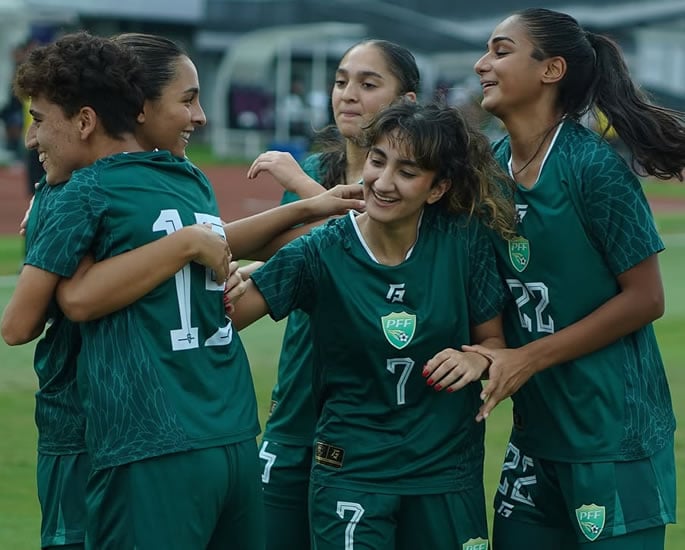
Pakistan’s return to international competition came during the 2026 AFC Women’s Asian Cup qualifiers in June and July 2025.
The team began with a heavy 8-0 defeat to Chinese Taipei, ranked 42nd in the world.
While discouraging, the loss highlighted the gap that still exists between Pakistan and higher-ranked teams.
The squad quickly rebounded, winning 2-0 against Indonesia and 2-1 against Kyrgyzstan, finishing second in their group. Only the group winners qualified for the tournament, but the results represented a substantial step forward.
This success coincides with institutional changes within the Pakistan Football Federation.
A new president has outlined plans to create domestic leagues for both men and women, which would provide consistent competition and development opportunities.
The appointment of overseas players has helped raise the team’s standards and prepared them for the growing demands of international football.
Mahmood stressed the importance of ongoing support: “I hope we have the funding to have more camps and friendlies and to keep playing football.”
The Road Ahead
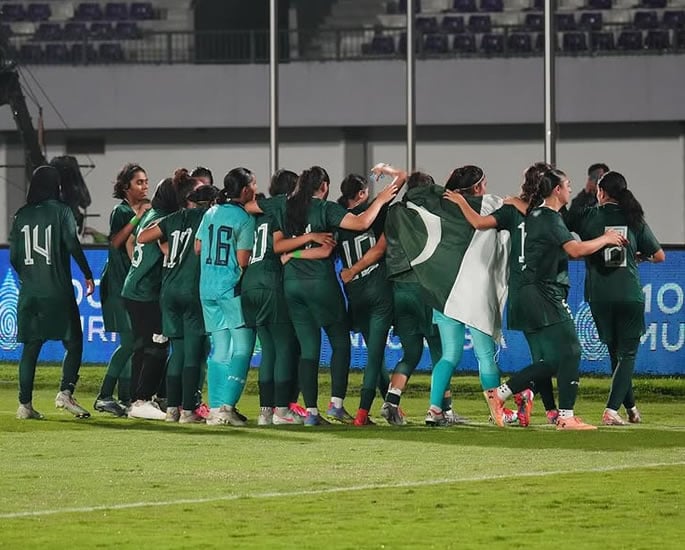
Despite the progress, challenges remain. Domestic infrastructure must grow to reduce dependence on diaspora players.
Integration of local and overseas talent requires careful management to maintain team cohesion.
Sustainable funding and transparent governance are crucial to prevent future interruptions.
More frequent international fixtures and domestic competitions will be key to sustaining momentum.
As Banaras said, continued exposure to competitive matches will only improve the squad’s performance.
Pakistan’s women’s football team has moved from near dormancy to a platform for growth and recognition.
The combination of British-born talent, rising confidence on the pitch, and institutional reform provides a foundation for the future.
If momentum is maintained, the Green Shirts could establish themselves as a competitive force in Asia while inspiring a new generation of homegrown players to follow in their footsteps.





































